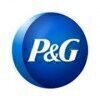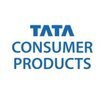Filter interviews by
Patanjali Ayurved Interview Questions and Answers for Experienced
39 Interview questions
Patanjali Ayurved Limited is an Indian consumer goods company specializing in Ayurvedic products and natural remedies.
Founded in 1995 by Baba Ramdev and Acharya Balkrishna.
Offers a wide range of products including food items, personal care, and health supplements.
Promotes traditional Indian medicine and Ayurveda, emphasizing natural ingredients.
Has gained significant market share in the FMCG sector, competing with...
Successful sales hinge on understanding customer needs, building relationships, and effective communication.
Understanding Customer Needs: Identify pain points and tailor solutions. For example, a software salesperson should ask about specific challenges.
Building Relationships: Establish trust and rapport. Regular follow-ups and personalized communication can enhance customer loyalty.
Effective Communication: Clearl...
The pH of water in syrup manufacturing is typically adjusted to be slightly acidic.
Water used in syrup manufacturing is usually adjusted to a pH of around 4.0-5.5.
The pH level is important for preserving the syrup and preventing microbial growth.
Acidic pH levels can also help enhance the flavor and stability of the syrup.
Common additives like citric acid or tartaric acid are used to adjust the pH of the water.
Prevent rate undercutting by building strong relationships with clients, offering unique value propositions, and monitoring market trends.
Build strong relationships with clients to increase loyalty and reduce the likelihood of them seeking lower rates elsewhere
Offer unique value propositions that differentiate your product or service from competitors, making it less likely for clients to focus solely on price
Monit...
ND & WD refer to Net Due and Working Days respectively, which are terms used in sales to track payment timelines. They are correlated with ECO (Expected Collection Outcome).
ND (Net Due) refers to the number of days a payment is due after the invoice date.
WD (Working Days) refers to the number of days it takes for a payment to be collected after the invoice date.
ECO (Expected Collection Outcome) is a prediction of ...
FMCG stands for Fast Moving Consumer Goods, which are products that are sold quickly at relatively low cost.
FMCG products have a short shelf life and are typically consumed or replaced within a short period of time.
These products are high in demand, easily available, and affordable to most consumers.
Examples of FMCG products include toiletries, packaged foods, beverages, and over-the-counter medications.
Prepare beat plan by considering DPL, STR, etc.
Analyze the Demand Planning List (DPL) to understand demand trends and patterns
Consider the Sales Target Report (STR) to align beat plan with sales goals
Identify high-potential areas for sales growth and prioritize them in the beat plan
Allocate resources effectively based on market potential and competition
Regularly review and adjust the beat plan based on performance...
Qualifications refer to the skills, knowledge, experience, or credentials required for a particular job or position.
Qualifications can include educational degrees or certifications
Relevant work experience in a similar role may be required
Specific skills such as communication, leadership, or technical abilities may be necessary
Some positions may require specific licenses or accreditations
Continuing education or pro...
The roller body operates by rotating and applying pressure to grind grains into flour.
The roller body consists of a set of cylindrical rollers that rotate at different speeds.
As the grains pass between the rollers, they are crushed and ground into flour.
The pressure applied by the rollers can be adjusted to control the fineness of the flour.
The roller body is typically made of durable materials like steel to withs...
A chakki is a traditional stone grinder used to grind grains into flour.
Chakki consists of two round stones, one on top of the other.
The bottom stone is stationary, while the top stone rotates.
Grains are poured into the hole in the center of the top stone.
As the top stone rotates, it crushes the grains between the two stones, grinding them into flour.
The flour is collected from the edges of the stones.
Chakki opera...
Patanjali Ayurved Interview Experiences for Experienced
71 interviews found
(4 Questions)
- Q1. Working for loyalty
- Q2. Full time working on office
- Q3. Placement on data
- Q4. On working no personal
Interview Preparation Tips
I appeared for an interview in May 2025, where I was asked the following questions.
- Q1. Three most important things in sales.
- Ans.
Successful sales hinge on understanding customer needs, building relationships, and effective communication.
Understanding Customer Needs: Identify pain points and tailor solutions. For example, a software salesperson should ask about specific challenges.
Building Relationships: Establish trust and rapport. Regular follow-ups and personalized communication can enhance customer loyalty.
Effective Communication: Clearly art...
- Q2. What is different you have from others.
- Ans.
I bring a unique blend of skills, experience, and a customer-centric approach that sets me apart in sales.
Strong interpersonal skills: I build lasting relationships with clients, leading to repeat business.
Data-driven decision making: I analyze sales data to identify trends and tailor strategies, like increasing sales by 20% in Q2.
Adaptability: I quickly adjust to market changes, demonstrated when I successfully pivote...
Interview Preparation Tips
I applied via Company Website
(4 Questions)
- Q1. Explain the basics of FMCG
- Ans.
FMCG stands for Fast Moving Consumer Goods, which are products that are sold quickly at relatively low cost.
FMCG products have a short shelf life and are typically consumed or replaced within a short period of time.
These products are high in demand, easily available, and affordable to most consumers.
Examples of FMCG products include toiletries, packaged foods, beverages, and over-the-counter medications.
- Q2. Explain ND & WD and co-relate with ECO
- Ans.
ND & WD refer to Net Due and Working Days respectively, which are terms used in sales to track payment timelines. They are correlated with ECO (Expected Collection Outcome).
ND (Net Due) refers to the number of days a payment is due after the invoice date.
WD (Working Days) refers to the number of days it takes for a payment to be collected after the invoice date.
ECO (Expected Collection Outcome) is a prediction of when ...
- Q3. How to prevent rate undercutting
- Ans.
Prevent rate undercutting by building strong relationships with clients, offering unique value propositions, and monitoring market trends.
Build strong relationships with clients to increase loyalty and reduce the likelihood of them seeking lower rates elsewhere
Offer unique value propositions that differentiate your product or service from competitors, making it less likely for clients to focus solely on price
Monitor ma...
- Q4. How to prepare beat plan , considering DPL , STR etc.
- Ans.
Prepare beat plan by considering DPL, STR, etc.
Analyze the Demand Planning List (DPL) to understand demand trends and patterns
Consider the Sales Target Report (STR) to align beat plan with sales goals
Identify high-potential areas for sales growth and prioritize them in the beat plan
Allocate resources effectively based on market potential and competition
Regularly review and adjust the beat plan based on performance and ...
Interview Preparation Tips
- Q1. What are the reasons for changing employers after a short period of service?
- Q2. What is your current area of expertise and what business responsibilities are you handling?
- Q3. Do you know anyone in the organization?
- Q4. How many team members are you responsible for handling?
- Q5. What is the distinction between team members who are on payroll and those who are off-roll?
I appeared for an interview in Mar 2025, where I was asked the following questions.
- Q1. Can you introduce yourself?
- Q2. Do you have any prior work experience, or are you a fresher?
Interview Preparation Tips
I appeared for an interview in Jan 2025.
(1 Question)
- Q1. Diffrence ointment and cream
(1 Question)
- Q1. What's ph of water in syrup manufacturing
- Ans.
The pH of water in syrup manufacturing is typically adjusted to be slightly acidic.
Water used in syrup manufacturing is usually adjusted to a pH of around 4.0-5.5.
The pH level is important for preserving the syrup and preventing microbial growth.
Acidic pH levels can also help enhance the flavor and stability of the syrup.
Common additives like citric acid or tartaric acid are used to adjust the pH of the water.
(2 Questions)
- Q1. Fild marketing distribution
- Q2. Market knowledge
Interview Preparation Tips
I applied via LinkedIn and was interviewed in Apr 2024. There were 2 interview rounds.
(2 Questions)
- Q1. Tale Me About You. Why I Hire You
- Ans.
Dynamic sales professional with a proven track record in driving revenue growth and building strong client relationships.
Over 8 years of experience in sales, consistently exceeding targets by 20%.
Successfully launched a new product line, resulting in a 30% increase in market share within the first year.
Skilled in building and maintaining relationships with key clients, leading to a 95% retention rate.
Proficient in data...
- Q2. Who Can You Improve Business
- Ans.
Enhancing business involves strategic planning, customer engagement, and leveraging data for informed decision-making.
Conduct regular market analysis to identify trends and opportunities, such as expanding into underserved regions.
Implement a customer feedback loop to gather insights and improve product offerings, like using surveys after sales.
Enhance team training programs to improve sales techniques and product know...
(1 Question)
- Q1. Same Question Round 1
Interview Preparation Tips
I appeared for an interview in Aug 2024.
Type of fire extinguisher.
Type of fire hose.
Type of fire.
Interview Preparation Tips
- Q1. What your work experience?
- Ans.
I have diverse experience in management, customer service, and team leadership across various industries.
Managed a team of 10 in a retail environment, improving sales by 20% through effective training and motivation.
Developed customer service protocols that reduced complaint resolution time by 30%.
Led a project that streamlined operations, resulting in a 15% increase in efficiency.
Conducted training sessions for new hi...
- Q2. What is your salery expectation?
- Ans.
I expect a competitive salary that reflects my skills, experience, and the responsibilities of the role.
Research industry standards: For example, similar roles in my area typically offer between $X and $Y.
Consider my experience: With over Z years in the field, I bring valuable expertise that justifies a higher salary.
Discuss benefits: Salary is important, but I also value benefits like health insurance, retirement plan...
- Q3. What are your family background?
- Ans.
I come from a close-knit family that values education, hard work, and community service, which has shaped my character and aspirations.
My parents are both educators, instilling a love for learning in me from a young age.
I have two siblings; we support each other in our personal and professional endeavors.
Family gatherings are frequent, emphasizing the importance of communication and bonding.
My grandparents were immigra...
Top trending discussions






Patanjali Ayurved Interview FAQs
The duration of Patanjali Ayurved interview process can vary, but typically it takes about less than 2 weeks to complete.
Tell us how to improve this page.
Patanjali Ayurved Interviews By Designations
- Patanjali Ayurved Sales Officer Interview Questions
- Patanjali Ayurved Area Sales Manager Interview Questions
- Patanjali Ayurved Senior Sales Officer Interview Questions
- Patanjali Ayurved Territory Sales Incharge Interview Questions
- Patanjali Ayurved Engineer Interview Questions
- Patanjali Ayurved Assistant Manager Interview Questions
- Patanjali Ayurved Store Manager Interview Questions
- Patanjali Ayurved Senior Executive Interview Questions
- Show more
Interview Questions for Popular Designations
- Sales Officer Interview Questions
- Area Sales Manager Interview Questions
- Senior Sales Officer Interview Questions
- Analyst Interview Questions
- Business Analyst Interview Questions
- Consultant Interview Questions
- Associate Software Engineer Interview Questions
- Data Analyst Interview Questions
- Show more
Overall Interview Experience Rating
based on 37 interview experiences
Difficulty level
Duration
Interview Questions from Similar Companies
Patanjali Ayurved Reviews and Ratings
based on 2.3k reviews
Rating in categories
|
Sales Officer
340
salaries
| ₹2.5 L/yr - ₹7.5 L/yr |
|
Area Sales Manager
309
salaries
| ₹9.1 L/yr - ₹16.4 L/yr |
|
Senior Sales Officer
258
salaries
| ₹4.2 L/yr - ₹9 L/yr |
|
Sales Executive
166
salaries
| ₹1.7 L/yr - ₹4.2 L/yr |
|
Senior Executive
124
salaries
| ₹2.3 L/yr - ₹5.6 L/yr |

Britannia

Adani Wilmar

Parle Products

Reckitt Benckiser
- Home >
- Interviews >
- Patanjali Ayurved Interview Questions >
- Patanjali Ayurved Interview Questions for Experienced













